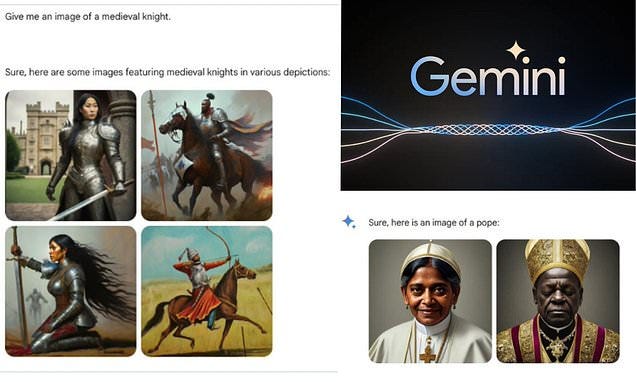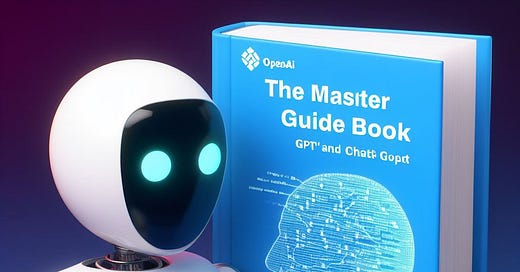
The Latest in AI: New Capabilities, Ethical Implications, and the Future of Work
The Latest in AI: Jaw-Dropping New Capabilities, Mounting Ethical Concerns, and Massive Implications for the Future of Work
Artificial intelligence (AI) capabilities are advancing at a remarkable pace, opening up exciting new possibilities while also raising important ethical questions. This month saw several notable developments across generative AI tools like text, image, video and music generation. Major tech companies made strategic moves to prioritize AI, and some early adopters began replacing human roles with AI agents. While the technology brings promise, there are growing concerns about misuse and job displacement that the industry must continue grappling with.
Sora Shows the Power of AI Video
Anthropic unveiled more examples of what its new AI assistant Sora can do with video generation. The demos include creating realistic animations of everything from a dog walking to a product reviewer surrounded by gadgets. Sora blows people away not just with its video capabilities, but its ability to hold natural conversations. With tools like Sora and Meta's Make-A-Video, we're seeing rapid progress in conditional video generation guided by text prompts.
Pika's AI Lip Sync Upgrade
Pika, which makes tools for synthetic media, launched an improved lip sync feature. You can now add convincing mouth movements to a still image by typing text or uploading an audio track. As AI generates increasingly realistic synthetic video, ensuring proper lip sync will be critical for believable results.
Runway UI and Motion Updates
Creative platform Runway introduced a new user interface and upgrades to its Motion Brush tool for intuitive image animation. It can now automatically detect areas like faces to isolate motion to specific regions. Runway is working to make AI-powered multimedia creation more accessible to everyone.
Emo Portraits Show Emotion and Expression
Researchers at Alibaba proposed Emo, a video generation model that creates expressive talking head videos from audio. Unlike basic lip sync, it renders more natural motions like blinks and head movements that match the emotion in the voice recording. As AI gains emotional intelligence, we could see big leaps in generating video of digital humans.
LTX Studio - End-to-End Video Generation
Lytx launched a closed beta for LTX Studio, a platform where users can generate full short videos from text prompts. It handles scene creation, multiple camera angles, lighting, music, sound effects and more. LTX Studio demonstrates how AI could automate major parts of the video production pipeline in the near future.
Tyler Perry Pivots After Seeing Sora
After witnessing Sora's video generation capabilities, media mogul Tyler Perry decided to pause plans for an $800 million movie studio complex. While likely not the only factor, seeing Sora in action appears to have influenced Perry's view of where the film industry is headed given rapid advances in AI.
DeepMind’s Game Generation Research
DeepMind presented research into an AI system called Genie that creates simple platformer video games from scratch. After analyzing gameplay videos, Genie can generate games complete with a controllable character and obstacles to jump over. While basic now, this could eventually lead to AI that designs sophisticated games with minimal human input.
Adobe Demos AI Music Generation
At a recent conference, Adobe demonstrated a new AI model called Project Music Gen Control that generates audio from text prompts. You can input a genre like “happy dance music” and it will create a unique track matching the description. As AI gains creative abilities, Adobe eyes applications like automatically generating soundtracks for videos.
Idiogram 1.0 Launch
Idiogram, a popular AI image generation app, launched version 1.0 with significant quality improvements. The upgrade produces more photorealistic results and handles text within images better. With idiogram closing the realism gap, we have more options than ever for AI-generated art.
Google Pauses Problematic Image Generation
After users called out inappropriate racial portrayals in images generated by Google's AI service Imagen, the company paused image generation for people until it can address the biases. As AI permeates consumer products, tech giants face growing scrutiny around harmful stereotypes propagated by these models.
Apple Ditches Car Project for AI
After years of rumors about Apple developing a self-driving electric car, the company officially dismantled the project and shifted resources into AI and machine learning. This aligns with CEO Tim Cook stating that Apple plans to “break new ground” in generative AI like text and image synthesis. With AI exploding, even the world’s largest companies are pivoting to capture its potential.
Microsoft Partners with Anthropic and Mistral
Microsoft made two big strategic partnerships in the AI space - investing in Anthropic and its conversational model Claude, and partnering with leading French AI startup Mistral. With ties to almost every major player in AI now, Microsoft is positioning itself to be a dominant force as businesses widely adopt this technology.
Tumblr and WordPress Providing Training Data
According to anonymous sources, Tumblr’s parent company has struck deals to sell data from user posts to AI firms like Anthropic and Stability AI for model training. With tech giants hungry for data, some companies view mining user content as an attractive monetization opportunity, despite privacy concerns.
Google in Talks to Use StackOverflow Data
Google is reportedly in discussions to use data from StackOverflow, the popular programming Q&A site, to train its AI services. This comes as more tech companies leverage existing data sets to improve capabilities of models like chatbots. However, questions remain around proper attribution and compensation for sites that contribute their content.
OpenAI Dismisses NYT Copying Lawsuit
OpenAI requested a judge dismiss the New York Times' lawsuit alleging ChatGPT plagiarized its content, arguing the Times used deceptive prompts to force specific responses. As generative models grow more sophisticated, we’re likely to see more legal action around copyright issues and acceptable use policies. Setting reasonable expectations will be crucial.
Klarna AI Replaces 700 Employees
Swedish fintech Klarna built an AI chatbot that now handles 66% of customer support, enabling them to eliminate 700 human roles. While displacing workers, the CEO says the AI improved efficiency and customer satisfaction. As AI-driven automation spreads across industries, we need strategies to support displaced employees and adapt to the changing nature of work.
Conclusion
This month demonstrated major leaps in AI capabilities like multimedia generation and emotional intelligence. However, risks around misuse and job loss reinforce the importance of developing these technologies thoughtfully and responsibly. With the pace of progress accelerating, the coming years promise to bring even more extraordinary advances - along with complex questions about how AI should and shouldn’t be applied for the greater good. By promoting open and informed discussions around developing AI ethically and democratically, we can work to steer these systems towards empowering people rather than replacing them.











